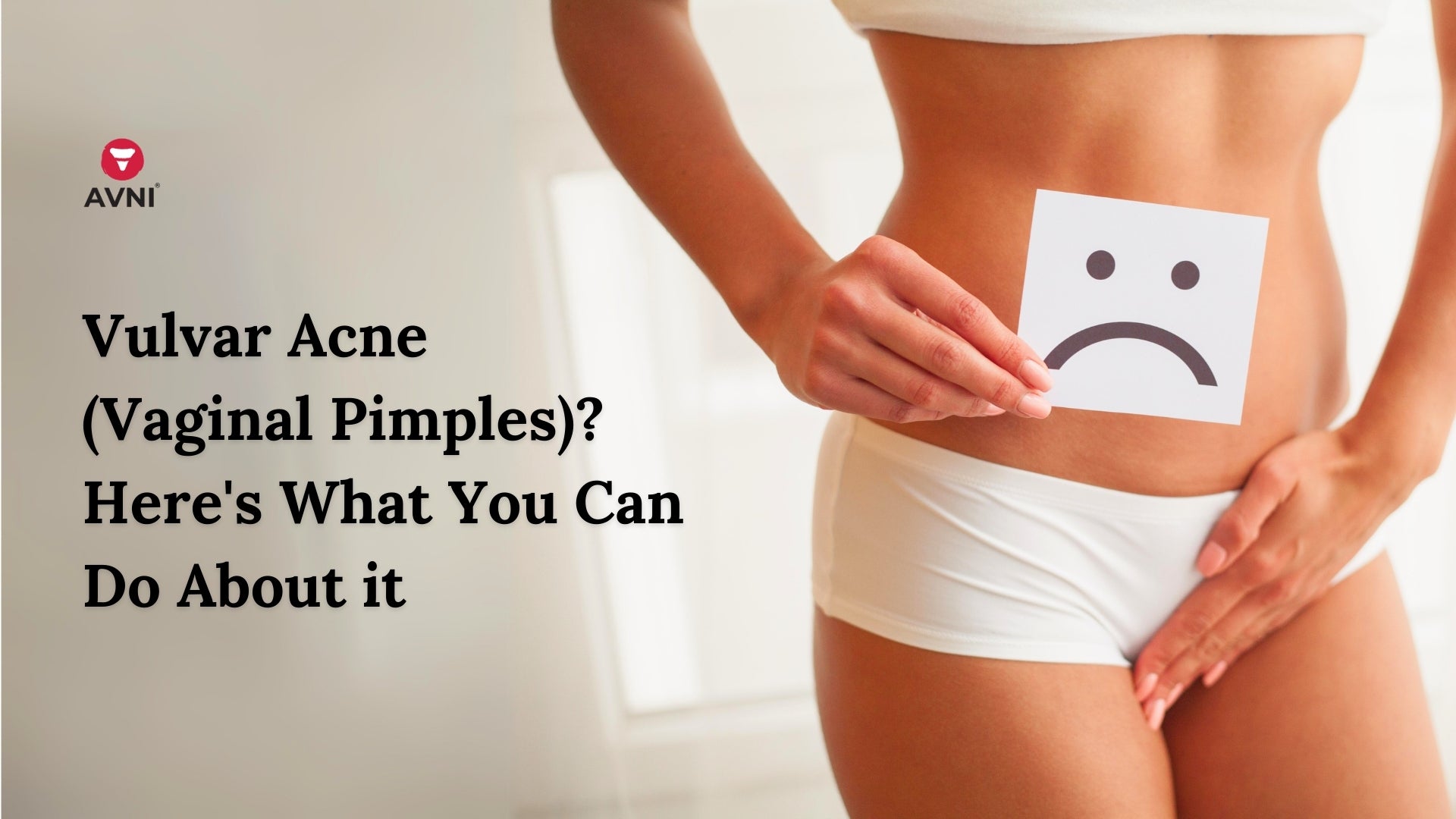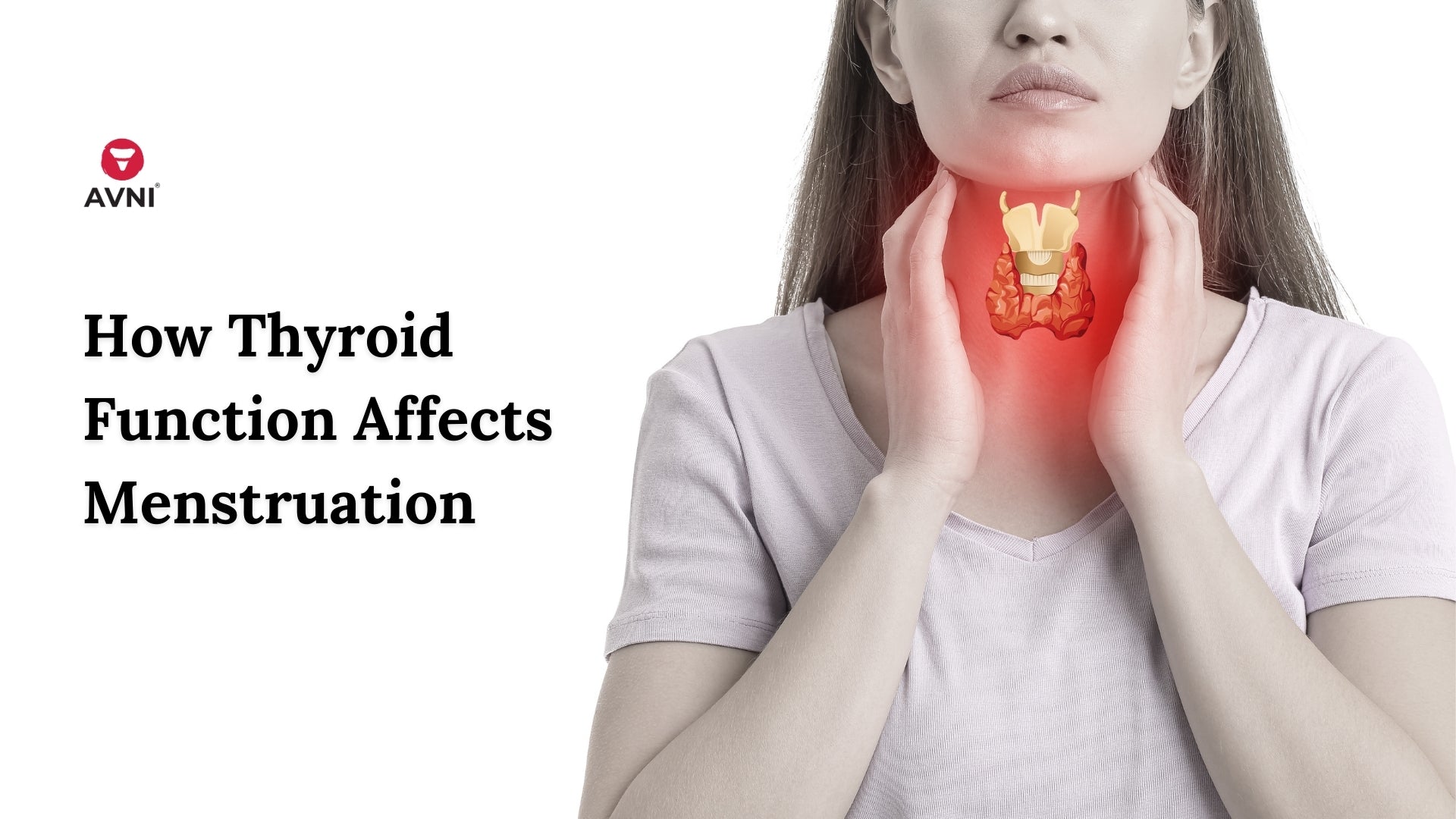
Vulvar Acne (Vaginal Pimples) ? Here's What You Can Do About it
Let's discuss vaginal pimples today. Sounds different? It exists. Small red bumps on the surface of the skin forms a pimple that often pops around genitals. Fret not! Vaginal pimples are common and occur due to acne or clogged skin pores.
Vaginal pimples crop up due to causes like sweat gland related skin disease, reaction to materials in contact with vulva, STIs or ingrown hair. Once the cause is known, you can treat it accordingly or allow it to heal itself. Seek medical assistance in case it becomes painful and you experience extensive discomfort.

You may be surprised to see these pimples on the external tissue or vulva. It makes you feel discomfort and itchy but are not a cause of great concern. Knowing and understanding why and how they occur must be on your checklist. While these pimples go away over time, you can treat and prevent them knowing the cause.
What do they look like?
A vaginal pimple looks like a round inflamed bump on the skin's surface. These may differ in shape, size and nature.
- Papula: a small, raised pimple that looks like a common zit
- Pustule: this kind of pimple looks white on the top, more like a whitehead, and is filled with pus
- A red looking acne that is tender to touch; looks ordinary but painful
What causes vaginal pimples?
How do vaginal pimples form? There is not one reason to cite the cause but many and each of them vary.
Contact dermatitis: vaginal pimples most likely is a reaction to materials that come in contact with the external tissue of the vulva. The skin down there is extremely sensitive. Contact dermatitis may occur if your skin is sensitive to -Scented soap or bubble bath with strong fragrance element
- Sanitary napkins or tampon
- Douches (applicator or fluid)
- Feminine wipes , lotions, powders and perfumes
- Semen
- Condoms, lubricants or other sex-related items
- Sweat
- Vaginal discharge
- Over-the-counter medications
- Laundry detergent
- Urine
Folliculitis: sometimes after shaving, you might see one or two pimples pop up on your genitalia. Don't be scared. It is the result of an infection of the hair follicle.
Folliculitis happens when public hair becomes infected or inflamed. While shaving is one possible reason for its occurrence, wearing skin-tight clothes, razor burns, ingrown hair and bathing in unclean water can also cause the bacteria to stay atop.
Acne Inversa or Hidradenitis Suppurativa (HS): it is a chronic skin disease that affects sweat glands in the groin. Unlike red bumps, these pimples are pus-filled and leave scars after treatment.
The inflammation of sweat glands leads to lesions on the skin. The pimples are likely painful, enlarge and drain pus. You may consider visiting your doctor when in doubt.
Molluscum Contagiosum: this is a kind of viral skin infection that happens when you come in contact with an infected person or object. Unprotected sex or skin to skin contact causes round bumps on the vagina. These are painless but itchy.
Refrain from scratching as it can cause infection if ruptured. Bumps may disappear on their own but you may ask for topical or oral medication as a means of treatment.
STIs (Sexually Transmitted Infections): Genital herpes and genital warts occur when you get in contact with an infected person. The former is caused by simplex herpes virus, the symptoms of which appear from time to time. This virus stays in the body forever.
The latter, genital warts, is caused by human papillomavirus and looks like a small bump or rather cauliflower-like floret on the genitals.
Bartholin Cysts: it is an unlikely condition wherein the glands on both sides of the skin gets blocked. Rather a painful bump, it causes irritation and goes away over time.
Skin tags: these are small flaps of the tissue on skin and pose no threat to the vaginal health. They might irritate upon touching and can be removed surgically by your doctor.
Diagnosis
Vaginal pimples are an easy diagnosis. When you see one, you know it. While they have self healing properties, you may visit your medical practitioner if they enlarge, are painful or occur on a regular basis.
Your doctor may run a quick examination of the genitals and diagnose the cause of vaginal pimples. Be ready to answer some quick asks related to hygiene habits, sexual history and daily routine.
Treatment
Vaginal pimples normally go away with time. As they appear, they vanish too. If the pimples stay for longer than usual, see a doctor. They may prescribe topical or oral medications if they are caused by contact dermatitis.
To be sure of what is causing contact dermatitis, stop using all the products on your vagina. Start by using one product at a time and record the reaction. This way you can be certain of the contact source and practice caution.
In cases of allergies and inflammation, antihistamines are prescribed to treat them. Antiviral medications are a suggested intake in cases of STIs. However, it is important that you consult your doctor before you pop any pills or any medication.
For acne and ingrown hair, skip shaving and try trimming pubic hair. If not, use the razor in the direction of the hair growth (downward slant) to avoid exposing hair follicle and causing ingrown hair.
Prevention
Vaginal pimples can be prevented by making few changes in your hygiene practices.
- Avoid wearing tight fitting clothes that rub heavily against your privates
- Use unscented soaps and washes
- Switch to showers over bathtub baths; clean water is the key to healthy vagina
- Let your vagina breathe by switching to cotton underwear over synthetic ones
- Hot water is a big no-no if you have pimples; keep it lukewarm
- Overall, prioritize intimate hygiene with good quality vaginal wash and period products.
- Ask your doctor about menstrual product that is best for your vagina.
Final Takeaway
Your vaginal health reacts to your actions. More the hygiene, healthier the genitalia. Vaginal pimples are a normal occurrence. While these small bumps are of no danger, why risk your vagina to such infections.
It is advised to keep a regular check down there and look out for any abnormalities to be certain. Knowing it all is the first step in treating vaginal pimples. See a doctor if the bumps look unusual or ruptured.



Leave a comment
This site is protected by hCaptcha and the hCaptcha Privacy Policy and Terms of Service apply.